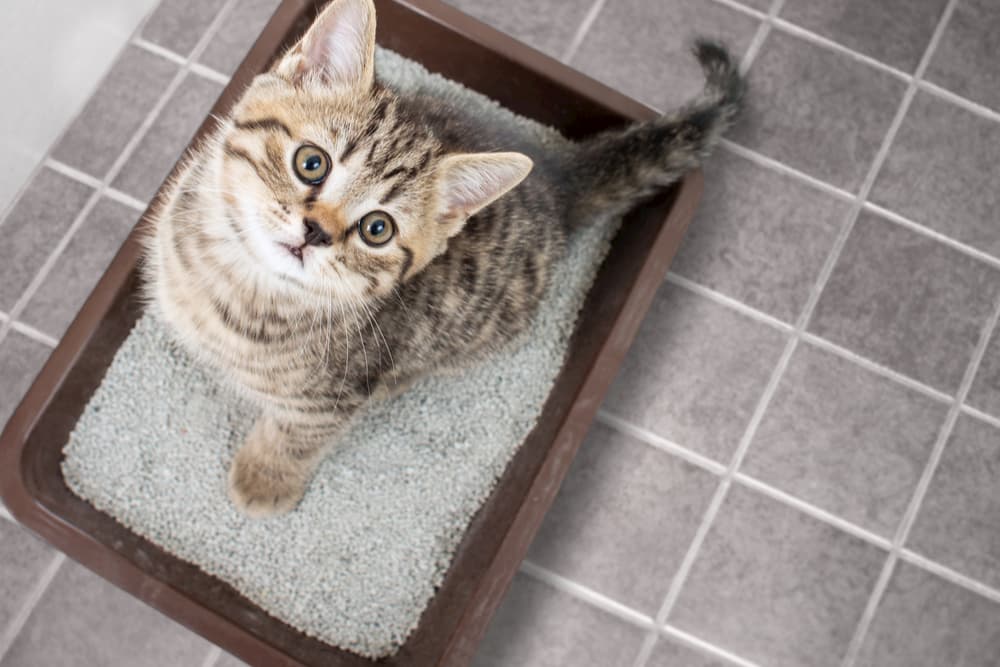We've discovered this great article pertaining to Don’t flush cat feces down the toilet listed below on the web and think it made sense to talk about it with you here.

Introduction
As feline owners, it's necessary to be mindful of how we deal with our feline buddies' waste. While it may seem hassle-free to purge feline poop down the toilet, this practice can have destructive effects for both the atmosphere and human health.
Alternatives to Flushing
Fortunately, there are more secure and much more responsible methods to get rid of cat poop. Take into consideration the following choices:
1. Scoop and Dispose in Trash
The most usual technique of disposing of feline poop is to scoop it into a naturally degradable bag and toss it in the trash. Make certain to use a specialized litter scoop and throw away the waste promptly.
2. Use Biodegradable Litter
Go with biodegradable feline trash made from products such as corn or wheat. These clutters are environmentally friendly and can be safely thrown away in the garbage.
3. Hide in the Yard
If you have a yard, consider burying feline waste in an assigned area away from vegetable gardens and water sources. Make sure to dig deep sufficient to avoid contamination of groundwater.
4. Install a Pet Waste Disposal System
Purchase a pet dog garbage disposal system specifically developed for cat waste. These systems use enzymes to break down the waste, reducing smell and ecological effect.
Health and wellness Risks
In addition to environmental problems, flushing pet cat waste can likewise position health threats to people. Cat feces might include Toxoplasma gondii, a parasite that can trigger toxoplasmosis-- a potentially extreme disease, particularly for expecting women and people with weakened body immune systems.
Environmental Impact
Flushing pet cat poop introduces unsafe microorganisms and bloodsuckers into the water system, posing a considerable threat to aquatic ecological communities. These contaminants can negatively influence aquatic life and compromise water top quality.
Verdict
Liable pet ownership expands past providing food and shelter-- it additionally entails correct waste management. By refraining from flushing cat poop down the bathroom and selecting alternate disposal techniques, we can lessen our ecological impact and secure human health and wellness.
Why You Should Never Flush Cat Poop Down the Toilet
A rose by any other name might smell as sweet, but not all poop is created equal. Toilets, and our sewage systems, are designed for human excrement, not animal waste. It might seem like it couldn’t hurt to toss cat feces into the loo, but it’s not a good idea to flush cat poop in the toilet.
First and foremost, assuming your cat uses a litter box, any waste is going to have litter on it. And even the smallest amount of litter can wreak havoc on plumbing.
Over time, small amounts build up, filling up your septic system. Most litter sold today is clumping; it is made from a type of clay that hardens when it gets wet. Ever tried to scrape old clumps from the bottom of a litter box? You know just how cement-hard it can get!
Now imagine just a small clump of that stuck in your pipes. A simple de-clogger like Drano isn’t going to cut it. And that means it’s going to cost you big time to fix it.
Parasitic Contamination
Believe it or not, your healthy kitty may be harboring a nasty parasite. Only cats excrete Toxoplasma in their feces. Yet it rarely causes serious health issues in the cats that are infected. Most people will be fine too if infected. Only pregnant women and people with compromised immune systems are at risk. (If you’ve ever heard how women who are expecting are excused from litter cleaning duty, Toxoplasma is why.)
But other animals may have a problem if infected with the parasite. And human water treatment systems aren’t designed to handle it. As a result, the systems don’t remove the parasite before discharging wastewater into local waterways. Fish, shellfish, and other marine life — otters in particular — are susceptible to toxoplasma. If exposed, most will end up with brain damage and many will die.
Depending on the species of fish, they may end up on someone’s fish hook and, ultimately on someone’s dinner plate. If that someone has a chronic illness, they’re at risk.
Skip the Toilet Training
We know there are folks out there who like to toilet train their cats. And we give them props, it takes a lot of work. But thanks to the toxoplasma, it’s not a good idea.

As an avid reader on How to Dispose of Cat Poop and Litter Without Plastic Bags, I figured sharing that piece of content was essential. Sharing is good. You just don't know, you will be helping someone out. I love reading our article about How to Dispose of Cat Poop and Litter Without Plastic Bags.
Additional Information